Processing business
The LOTOS Group’s operating activity is centred on refining operations and supplying the market with high quality products, while utilising the production capacities in the optimal way and minimising the adverse environmental impact.
The Group’s operating segment comprises the operations of the refinery in Gdańsk - the largest production plant in the LOTOS Group, and those of subsidiaries involved in production or support functions. The subsidiaries include LOTOS Infrastruktura, LOTOS Serwis, LOTOS Lab, LOTOS Straż and LOTOS Ochrona.
Achievements
The spring 2013 overhaul shutdown was the most important event of the year at the Grupa LOTOS refinery. It was the first major overhaul shutdown since the refinery’s expansion under the 10+ Programme. The purpose of such shutdowns is to ensure safe operation of the refinery equipment by restoring them to full working order. It is only during these stoppages that certain inspections required by the Office of Technical Inspection can be carried out. In addition, they are an opportunity to implement a number of upgrades, which cannot be done while the units are operational. In the Grupa LOTOS refinery, overhaul shutdowns are carried out at four-year intervals.
The work slated for the 2013 overhaul shutdown was carried out in full. The overhaul work schedule was prepared in accordance with relevant benchmarks for the refining industry, with the target overhaul duration across key process units within the European average. Additionally, in the refinery’s current configuration, it was possible to divide the work between two independent oil distillation lines, the overhaul of which was phased. As the total downtime in crude oil processing was reduced, the shutdown’s impact on the market availability of the refinery’s products was less significant than in previous years.
The overhaul shutdown was used as an occasion to carry out a number of efficiency improving projects, designed to optimise the refining processes and replace old units. The most important of these included:
- modernisation of the liquid gas separation facility, which increased the unit’s capacity and raised the quality of liquid gas streams,
- modernisation of the gasoline hydrodesulphurisation and separation column, resulting in higher potential output of more expensive gasoline from naphtha processing and improving the process efficiency,
- launch of a flare gas recovery unit, designed to enable the use of flare gas as a fuel. The implementation of the project improved the Company’s energy efficiency, reduced its environmental impact (CO2 emissions and noise) and enhanced its image,
- replacement of old furnaces at the gasoline hydrodesulphurisation and oil refining units. Thanks to their high energy efficiency and enhanced operating profile, the new furnaces will improve the units’ production performance.
In 2013, the 30-day downtime led to a year-on-year decrease in the volume of crude oil processed. The refinery processed 8.7m tonnes of crude, which means that the average annual utilisation rate of its installed capacities was 82.9%. The refinery’s workload was adjusted to market conditions, which remained challenging throughout the year.
In 2013, the 30-day downtime led to a year-on-year decrease in the volume of crude oil processed. The refinery processed 8.7m tonnes of crude, which means that the average annual utilisation rate of its installed capacities was 82.9%. The refinery’s workload was adjusted to market conditions, which remained challenging throughout the year.
Crude oil processing and production of finished products at the Grupa LOTOS refinery (million tonnes)
Crude slate (%)
Finished products (%)
Utilisation of the refinery’s capacities (%)
As in previous years, the main type of crude processed was Russian REBCO, whose share in the total volume was close to 90.4% and remained relatively flat on previous years. Crude oil imported by sea, including approximately 140 thousand tonnes of Rozewie crude supplied by LOTOS Petrobaltic, accounted for the balance of the crude feed. Following LOTOS Petrobaltic’s acquisition of AB Geonafta, the refinery in Gdańsk also began processing crude oil supplied from Lithuania. In 2013, the volume of Lithuanian crude processed by our refinery was close to 48 thousand tonnes. Throughout the year, we recorded no supply disruptions which could affect the volumes of crude processed by the refinery.
In 2013, the margin levels and demand conditions favoured maximised production of middle distillates such as diesel oil, aviation fuel and light fuel oil, with these products accounting for nearly 56% of the refinery’s total output.
The refinery’s utilisation rate fell as a result of the overhaul shutdown. However, the hydrocracking unit’s 2013 workloads were comparable to those recorded in 2012. This was attributable chiefly to a very short downtime of the 390 hydrocracking unit, which was built as part of the 10+ Programme and launched in 2011, and so did not require any substantial repairs.
Throughout 2013, the focus was on maximising the use of natural gas as a fuel and feedstock in hydrogen production. Natural gas consumption rose by 75% year on year, to reach 372 thousand tonnes. As a result, the output of products previously consumed at the refinery instead of natural gas, such as liquefied gas, gasolines and fuel oil, went up.
Research and development
The focus of our research and development activities was on further optimisation of technologies for the oils unit’s products manufactured at our refinery in Gdańsk. The most important R&D achievement in 2013 was the development of production technology for bright stock oil with an increased viscosity index of 95 or more, followed by successful production launch and marketing of the product. The viscosity index was increased by using paraffin fraction residue.
As regards road bitumen and oil production technologies, in 2013:
- industrial validation was obtained for MODBIT 45/80-55 CR, a new polymer-modified bitumen with added rubber recovered from waste rubber, designed for construction of hard-wearing and environmentally friendly roads;
- laboratory validation was performed for MODBIT 25/55-60 CR, a new bitumen minimising the effects of road structure stiffening at very low temperatures;
- testing was completed for L-HV hydraulic oils for compliance with the Denison HF-0 requirements, to obtain the required Approvals;
- field tests were carried out for oils to be used in stationary gas engines, to obtain formal approval for use by selected engine manufacturers;
- new classes of motor and industrial oils were introduced, to offer a range of products suitable for various climate conditions in export countries;
- 27 Approvals for lubricants were extended, and 16 new Approvals were secured.
Challenges in strategy implementation until 2015
Actions taken in 2013 were consistent with the objectives of the LOTOS Group’s business and CSR strategies until 2015. In the years to come, our efforts to further increase the efficiency of the refinery in Gdańsk will be continued. The key plans for the coming years include:
- Increasing the effectiveness of hydrocarbon production in the refinery through the construction of a Hydrogen Recovery Unit;
- Upgrading the fourth boiler of the refinery’s CHP plant by converting it into a gas-fired unit;
- Continuing work on the design of the coking complex;
- Refining our plans for producing high-quality base oils using paraffin fraction from MHC hydrocracking units;
- Further work on the construction of a petrochemical production complex;
- Developing the infrastructure for unloading oil from rail cars.
Development prospects until 2020
Development directions until 2020 in the processing business concern mostly projects that have already been commenced and are aimed at improving the economic efficiency of feedstock processing at the refinery in Gdańsk. The most important challenges in this area will be:
- The project of a coking complex together with accompanying installations. So far, the technical aspect of the project is quite advanced. However, the real challenge will be to ensure financing for the project as well as the smooth implementation of all its stages. Our experiences gained during the implementation of the 10+ Programme shall prove useful for smooth completion of the coking project.
- The project of a petrochemical production complex, which is currently at the stage of conducting feasibility studies. Shall the project prove to be economically beneficial and financially viable, then its completion will pose a major challenge and will open up a new chapter in the LOTOS Group’s activities.
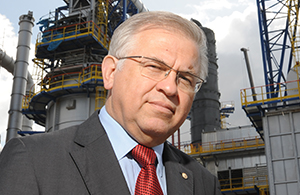


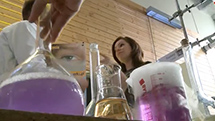
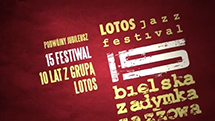







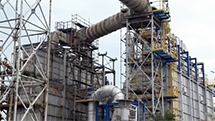

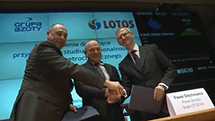
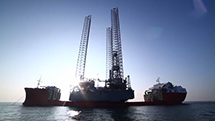
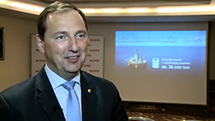
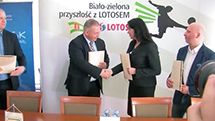
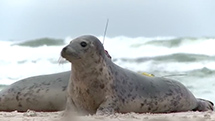
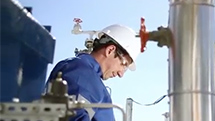

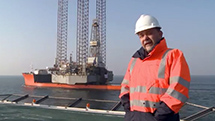
 E-mail
E-mail Facebook
Facebook Google+
Google+ Twitter
Twitter